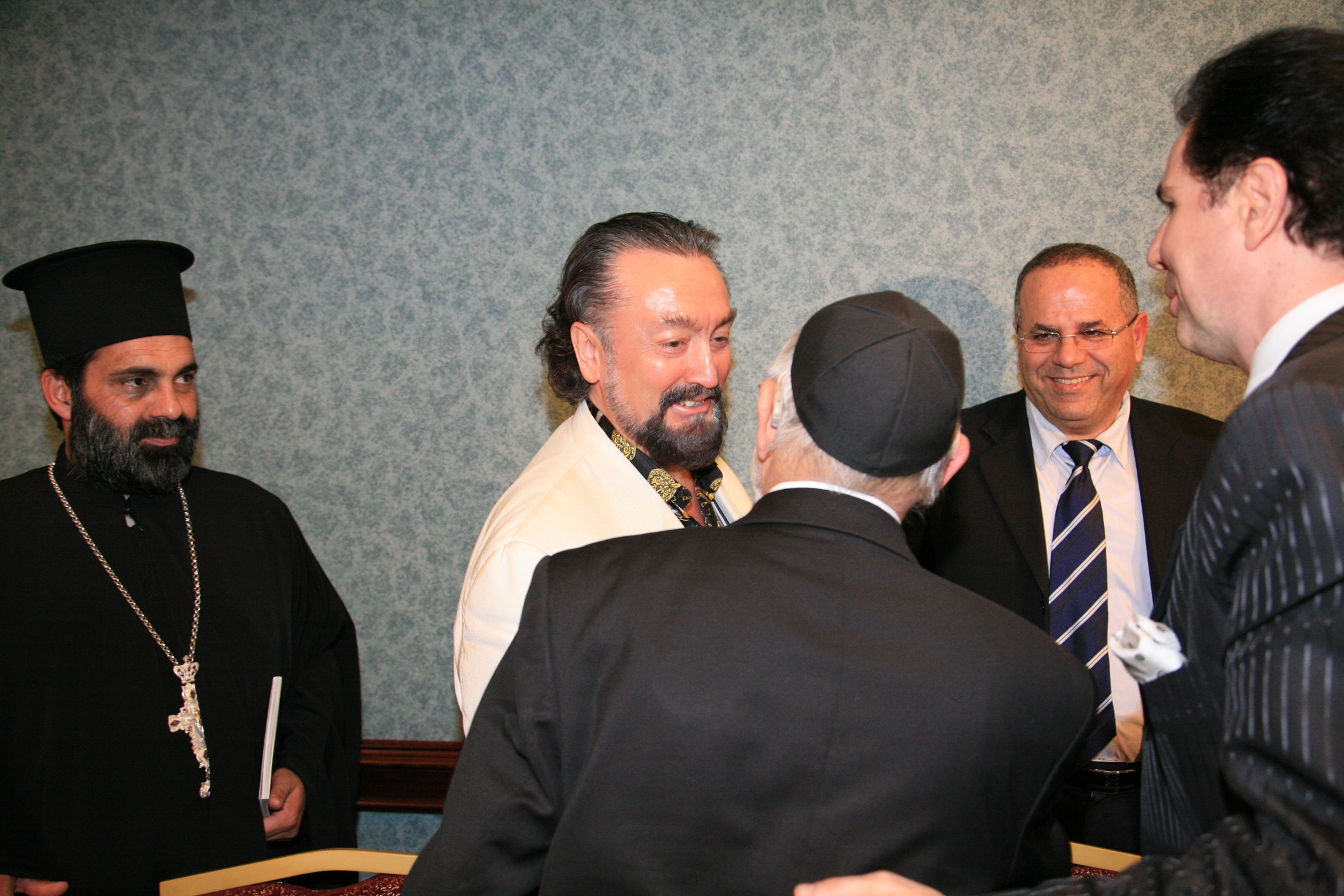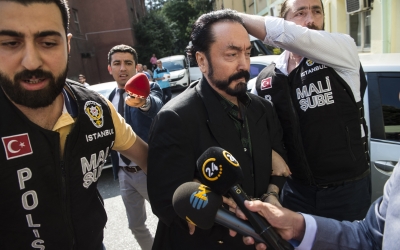Adnan Oktar: Turkish cult leader sentenced to 8,658 years in prison after retrial

Televangelist and cult leader Adnan Oktar has been sentenced to a record 8,658 years in prison, following a retrial in Turkey on charges of sexual assault and depriving someone of their liberty.
Oktar, who also went by the alias Harun Yahya, was jailed last year on a range of crimes including sexual abuse of minors, fraud and attempted political and military espionage.
Although that ruling was overturned on appeal by an upper court, on Wednesday the Istanbul high criminal court handed him and 13 of his associates a sentence of 8,658 years in prison each.
Oktar became known internationally for the talk show he hosted on his own A9 TV channel, which often featured a mix of religious discussion alongside scantily clad women dancing to modern pop music.
The "kittens", as the women associated with Oktar were known, were the most prominent advocates of his movement - but a number of those who left his company said they were subjected to sexual slavery. One woman previously testified at his trial that Oktar had sexually assaulted her and other women and forced them to take contraceptive pills.
New MEE newsletter: Jerusalem Dispatch
Sign up to get the latest insights and analysis on Israel-Palestine, alongside Turkey Unpacked and other MEE newsletters
Around 69,000 contraceptive pills were found by police in his home, which he claimed in court were used to treat skin disorders and menstrual problems.
Oktar was originally taken into custody in Istanbul in 2018 as part of a probe by the city's police financial crimes unit.
Sexual abuse and lawsuits
Former members of his group have described repeated sexual abuse within his organisation, as well as constant harassment after leaving it.
Ebru Simsek, a former member of Oktar's organisation, told Turkish media after his conviction in 2021 that she had found herself subjected to more than 300 defamation lawsuits from Oktar, who she said was "obsessed" with her after seeing her in a beauty contest on TV in 1994.
"Adnan Oktar saw me on the screen and went crazy! He even said, 'I saw you in the newspaper, on TV, I liked it very much, take your pajamas and live with me in my wonderful mansion'," she told Posta.
"'Come here, I will offer you the best conditions, you will wear the best brands, your life will be luxurious'. I felt that they had nothing to do with religion."
She said the pressure he applied on her after leaving the organisation eventually became so intense - disrupting both her work and social life - that she left for the United States to escape his harassment.
Oktar's followers claim, however, that he has been the subject of a political stitch-up.
Aylin Kocaman, one of Oktar's supporters and a former columnist for Saudi newspaper Al-Sharq Al-Awsat, told Middle East Eye last year that the trials against him and his associates were controlled by "a bigger hand, a deep force".
Some other political figures have also questioned the conduct of his arrest and the trial.
Omer Faruk Gergerlioglu, a lawyer and MP for the left-wing Peoples Democracy Party (HDP), suggested earlier this year that Oktar's original trial contained "unlawful evidence" and criticised the use of "secret witnesses."
"If people have committed crimes, they should be tried fairly and punished accordingly," he said, in a statement to parliament.
Middle East Eye delivers independent and unrivalled coverage and analysis of the Middle East, North Africa and beyond. To learn more about republishing this content and the associated fees, please fill out this form. More about MEE can be found here.





